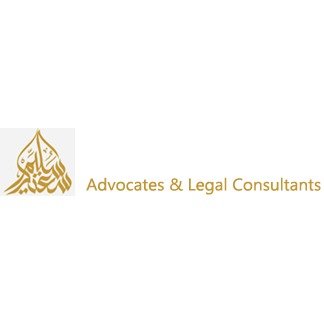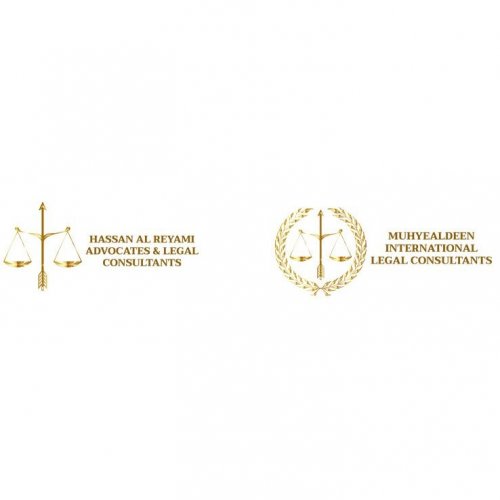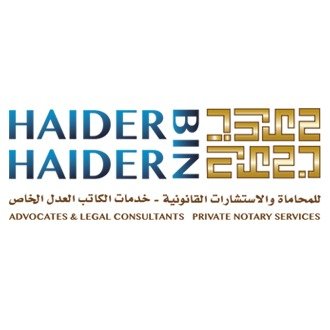Best Inheritance Law Lawyers in Dubai
Share your needs with us, get contacted by law firms.
Free. Takes 2 min.
List of the best lawyers in Dubai, United Arab Emirates
1. About Inheritance Law in Dubai, United Arab Emirates
Inheritance law in Dubai sits at the intersection of personal status rules, civil code principles, and emirate specific frameworks. For Muslims, Sharia-based rules generally determine how an estate is distributed among heirs. For non-Muslims, the UAE provides alternative pathways, notably through wills and the DIFC Wills and Probate regime, to control how assets are passed on. In Dubai, assets located in the emirate are primarily subject to local probate rules, while offshore assets may follow other jurisdictions if a valid will permits it.
The UAE also uses a two-layer approach: the general UAE Civil Code for non-personal status matters and the Personal Status framework that governs family and inheritance issues for Muslims. This blend means careful planning matters when you own real estate, bank balances, or business interests in Dubai. A properly drafted will or a clear estate plan can help align outcomes with your wishes and minimize conflicts between heirs.
Evidence from UAE federal and emirate level guidance shows that wills and inheritance are structured to balance Sharia norms with expatriate planning options, especially for assets in DIFC and Dubai.Ministry of Justice UAE
Non-Muslim residents may use the DIFC Wills and Probate regime to designate beneficiaries for Dubai and DIFC assets, offering a parallel framework to native UAE inheritance rules.DIFC Courts
2. Why You May Need a Lawyer
Inheritance matters in Dubai can become complex quickly, especially with cross-border assets or mixed families. A lawyer helps you navigate local procedures, avoid missteps, and protect your interests. Here are concrete scenarios where specialized legal help is essential.
- You are a non-Muslim expatriate with assets in Dubai and abroad, and you want a will that preserves your home country’s inheritance rules while complying with UAE law.
- A loved one dies without a will in Dubai and you fear the estate will be divided under Sharia rules that may not reflect your family’s intentions.
- You own property in Dubai and need to appoint guardians for minor children or designate executors to manage the estate.
- A will you prepared years ago now needs updating due to a marriage, birth, or acquisition of new assets in Dubai or DIFC.
- You need to challenge or defend a will, or resolve conflicts among heirs over Dubai-based assets, including real estate or bank accounts.
- Your family or heirs live outside the UAE, and you require guidance on cross-border probate, debt settlements, and repatriation of assets.
In each scenario, a Dubai-based solicitor or attorney who understands both UAE and DIFC regimes can tailor your plan, prepare valid documents, and represent you in court if probate or succession disputes arise.
3. Local Laws Overview
Dubai inheritance matters are governed by a mix of federal and local statutes, plus emirate-specific regimes for particular asset classes. Here are the key legal anchors you should know.
Federal Personal Status Law - Personal status matters including marriage, divorce, child custody, and inheritance for Muslims are largely guided by the UAE’s Personal Status framework. The core statute commonly cited is Federal Law No. 28 of 2005 on Personal Status, with amendments over time. This law sets the baseline for intestate succession and the shares allocated to heirs according to Sharia principles when there is no valid will.
UAE Civil Code - The Civil Code (often cited as Federal Law No. 5 of 1985) provides the general rules of property and obligations that apply to non-personal-status matters, including certain estate and inheritance issues when not governed by the Personal Status framework. In practice, it governs contracts, property transfers, and probate steps that are not strictly within Sharia-based allocations.
DIFC Wills and Probate Law - The Dubai International Financial Centre offers a separate regime for wills and probate that applies to assets within the DIFC or owned by non-Muslim residents seeking to use Western-style estate planning. The DIFC regime is designed to provide privacy, simplicity, and predictability for expatriates and international families, operating independently from the UAE Civil Code in many respects.
Recent trends and changes - In recent years, there has been a growing use of the DIFC Wills regime by expatriates with Dubai-based assets, providing an alternative to Sharia-based distribution for those assets. This trend accompanies ongoing public information efforts by UAE authorities to clarify the options for non-Muslims and for cross-border estates.
Further guidance can be found on official sources discussing wills and inheritance in the UAE. For authoritative explanations and updates, refer to the UAE Ministry of Justice and the DIFC Courts resources linked below.
4. Frequently Asked Questions
What is inheritance law in Dubai for Muslims?
Inheritance follows Sharia-based distribution among heirs when there is no valid will. The shares depend on the family structure, including spouses, children, parents, and siblings. A lawyer can explain the exact shares under current law and any applicable exemptions.
How do I make a will in Dubai as a non-Muslim?
Non-Muslims can create a will under the UAE DIFC regime or through other UAE-based will structures that comply with local rules. A Dubai-based solicitor can help draft a will in English, Arabic, or both and ensure proper witnessing and registration when required.
When should I update my will in Dubai?
Update after major life events: marriage, divorce, the birth of a child, acquisition or sale of Dubai or DIFC assets, or if you acquire new nationalities or relocate assets. Regular reviews every 2-3 years are advisable.
Where should I store an inheritance will that covers Dubai assets?
Store the original with a trusted attorney or a registered will with a recognized authority. For DIFC based wills, the original document can be held within the DIFC system, while UAE-based wills may be maintained by the applicable court or a licensed lawyer.
Why are there different regimes for wills in Dubai?
The divergence exists to accommodate Muslims under Sharia rules and to offer expatriates a modern, privacy-friendly framework for cross-border estates. DIFC provides an alternative that can be more predictable for non-Muslim families.
Can a Dubai will override Sharia when I own Dubai real estate?
To some extent yes for assets that fall under the appropriate regime, such as DIFC assets or assets specifically addressed in a valid will. Real estate in Dubai may still be subject to local probate and authority approvals, so professional guidance is essential.
Should I appoint an executor in my Dubai will?
Yes. An executor (or administrator) helps manage the estate, settle debts, and distribute assets according to the will or applicable law. The appointment should be clear and in line with local rules.
Do I need a lawyer to handle inheritance in Dubai?
Engaging a Dubai-licensed solicitor or attorney improves your odds of a smooth process. A lawyer can prepare documents, file with the courts, and represent you in disputes or probate proceedings.
Is probate required for Dubai assets?
Probate processes vary by asset and regime. In many cases, courts issue a grant of representation or probate to manage Dubai-based estates, especially for real estate and bank accounts. Consult a lawyer for your specific situation.
How long does the Dubai probate process usually take?
Timelines depend on complexity and asset types. Estates with straightforward assets may conclude within several months, while complex cross-border estates can take longer. A lawyer can provide a more precise estimate after reviewing your case.
How much does it cost to hire a lawyer for inheritance matters in Dubai?
Costs vary by practice and case complexity. Typical fees may include a retainer, hourly rates, and court filing charges. Request a clear estimate and a scope of work before engaging counsel.
5. Additional Resources
- UAE Ministry of Justice - Official authority overseeing civil and personal status matters, including probate and family law. Functions include licensing, judicial processes, and public guidance on inheritance issues. https://www.moj.gov.ae
- UAE Government Portal - Central source for information on wills, inheritance options, and regulatory frameworks affecting residents and expatriates. https://u.ae
- DIFC Courts - Independent regime offering Wills and Probate guidance for assets within the DIFC and for cross-border estates, including relevant judicial procedures. https://www.difccourts.ae
6. Next Steps
- Assess your asset mix and determine which regime applies to your situation (UAE civil law, Personal Status, or DIFC). This helps you choose the right path for a will or probate.
- Consult a Dubai-licensed solicitor or attorney who specializes in inheritance and family law. Schedule an initial consultation to outline goals and risks.
- Gather essential documents, including passports, Emirates IDs, property titles, bank statements, and any existing wills. Compile death-benefit and debt information.
- Decide on the governing framework for your estate (Sharia-based for Muslims or a DIFC-based will for non-Muslims) and prepare a draft will with your lawyer.
- Submit your will or estate plan to the appropriate authority for registration or safekeeping as advised by your attorney. Obtain acknowledgment of receipt and any registration numbers.
- Plan a verification and probate strategy with your lawyer, including appointing an executor and listing beneficiaries, to avoid delays if a transfer or sale is needed.
- Review and update your plan regularly, especially after life events or when you acquire new Dubai or DIFC assets. Schedule a re-evaluation every 2-3 years.
Lawzana helps you find the best lawyers and law firms in Dubai through a curated and pre-screened list of qualified legal professionals. Our platform offers rankings and detailed profiles of attorneys and law firms, allowing you to compare based on practice areas, including Inheritance Law, experience, and client feedback.
Each profile includes a description of the firm's areas of practice, client reviews, team members and partners, year of establishment, spoken languages, office locations, contact information, social media presence, and any published articles or resources. Most firms on our platform speak English and are experienced in both local and international legal matters.
Get a quote from top-rated law firms in Dubai, United Arab Emirates — quickly, securely, and without unnecessary hassle.
Disclaimer:
The information provided on this page is for general informational purposes only and does not constitute legal advice. While we strive to ensure the accuracy and relevance of the content, legal information may change over time, and interpretations of the law can vary. You should always consult with a qualified legal professional for advice specific to your situation.
We disclaim all liability for actions taken or not taken based on the content of this page. If you believe any information is incorrect or outdated, please contact us, and we will review and update it where appropriate.

















